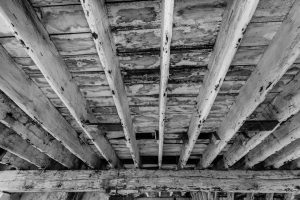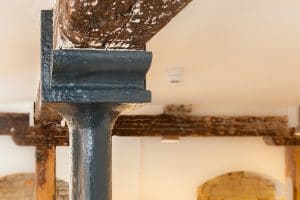For those who want to invest in Commercial property in Scotland it is important to know how Land and Buildings Transaction Tax (LBTT) is applied to commercial leases.
Some may be forgiven for thinking that we are taxed every time we move a muscle and sometimes even when we don’t. And so it is with Leases. If you set up a lease with a tenant which is registered in the Books of Council and Session at Registers of Scotland, then there could well be a tax liability due. So depending on the purchase price and lease value, you could get taxed LBTT twice! The first time when you purchase a property and then when you set up a commercial lease with a new tenant.
The good news is that Non residential LBTT is less punitive than Land and buildings tax for residential properties in Scotland, plus you won’t need to worry about the 4% additional dwelling supplement. Here are the numbers for lease transactions (not purchases) at the date of writing.
- Up to £150K 0%
- Above £150K – £350K 3%
- Above £350K 5%
The first £150K of the lease amount is charged at 0%, the next £200K is charged at 3% and anything above £350K is charged at 5%.
Another lovely quirk is that when you buy commercial property that has been elected to tax i.e. it is Vatable then the government have a nice double tax going on. When you are working out your LBTT on either a purchase or a lease of a commercial property you have to add the VAT onto the total value of the transaction.
We stupidly got caught with this one on our first deal. Back then the rates and name of the tax was different but the principles were the same. We successfully negotiated a price just under the higher band tax rate, but then the VAT had to be added to that figure and suddenly we ended up paying about £8K more for a tax on a tax. Back then if you went over into the next tax band you had to pay the higher percentage on the whole amount. Painful.
When you look at the figures, you might think that after you have bought and done up your commercial property and your rental is going to be say £100K per year you won’t have to worry about LBTT. Wrong! If you put a lease in place for say five years, the tax is calculated on the whole 5 years of income plus the VAT. The value of the lease is worked out to the net present day value which does thankfully mean it will be slightly less.
So let’s work an example. You manage to get a five-year lease at £100K plus vat for your newly refurbished industrial building.
£100K x 5 years = £500K+ VAT which equates to £600K
So even though the annual lease consideration (price) is well under £150K the actual calculation is worked on £600K. Currently the net present day value of that particular lease arrangement is around £541,806 as worked out with the revenue tax calculator.
So the actual tax for providing a space to a business customer under this particular example is £3,918. It is a one off, but if you have any upward rent reviews built in they will be picked up and taxed when you have to report changes every three years.
Just for clarity, most of the time we use Licenses to occupy rather than leases for our customers. These are not subject to LBTT. I covered this in a previous blog. We have purchased a few buildings that have had a lease in place and occasionally we have let properties on a Fully Insuring and Repairing lease (FIR) but they tend to be for the whole building rather than in part.
For the sake of completeness here are the current LBTT figures for purchasing Commercial property in Scotland.
- Up to £150K 0%
- Above £150K – £250K 1%
- Above £250K 5%
I am going to cover LBTT and other purchasing factors in a future blog including some sensible ways to mitigate those taxes. Please subscribe here if you want to be alerted of that one.
Right now we are going through due diligence on a larger lease so it is fresh in the mind and I thought I would share a more technical blog on the subject.





